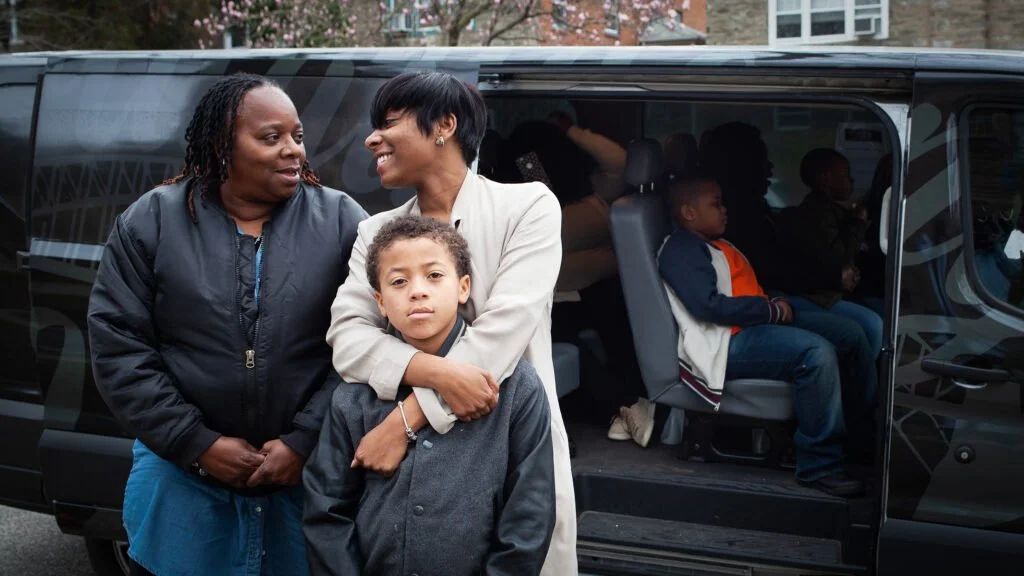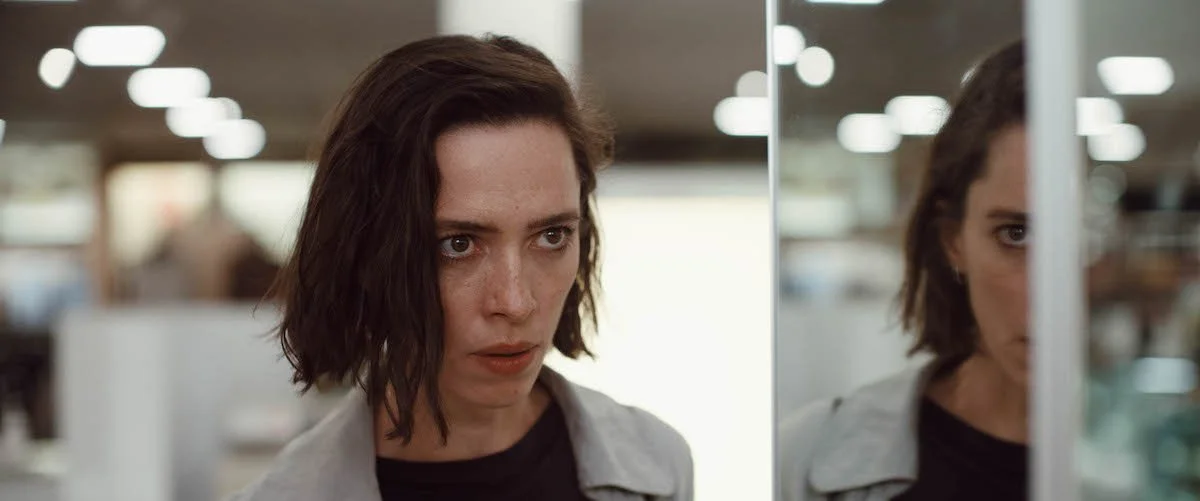A. Freedman's Favorite Movies of 2022
by A. Freedman, Contributor
Some caveats to consider while making a top ten list:
While recency bias may exist, there's also a first half of the year bias. Movies that have longer to linger in your mind might seem better than ones you've just seen.
A movie that debuts at a film festival but doesn't have a theatrical release til the following year- what to do? I tend to stick with the year I saw it in, because otherwise they fall through the cracks as far as list making goes.
I tend to leave out tentpole films and blockbusters, assuming they don't need this kind of attention. But what about when they're fantastic? And how do you compare and contrast, say, a Top Gun sequel to a Sundance documentary?
Sometimes you want to stick up for the little guy, and you keep a lesser known movie on your list to give it some love. Or you do it to be different. Probably both.
Sometimes the prestige films that everybody loves leave you feeling underwhelmed- a victim of their own hype. They need to be seen out of the current media cycle to accurately judge them.
So without further ado...
10. Tár (dir. Todd Field)
Sixteen years is a long time to take between your second and third movie (Terrence Malick wasn't far off, with twenty), but Todd Field's Tár was worth the wait. Directing his own script for the first time, it feels like not a new chapter, but a new book. With Cate Blanchett as his lead, Tár takes on one of the thorniest topics of our time- "cancel culture." It seems impossible to make art about it without tipping your hat one way or another. But by planting us firmly in Lydia's shoes, we simply experience her downfall first hand. Particularly so in a dizzying final third where big chunks are missing entirely, as she seems to block out painful but relevant information in real time.
9. The Fabelmans (dir. Steven Spielberg)
In the era of directors reflecting on their youth and the "magic of cinema," The Fabelmans was one of my more anticipated of the bunch. Steven Spielberg is a peerless director, so what made him? It is a story of a young Jewish boy torn between his love for family and his need for something he can always count on. As the mother of young Sammy, Michelle Williams is the imperfect human who needed more from life than what she had, and whose choices forced her children to grow up faster than they would have. Cinema is Sammy's bridge, the sure footing where he can make sense of an idealized American life's many contradictions. It's an honest, unsparing, but loving look at how your family shapes you and the artist you become.
8. Stars At Noon (dir. Claire Denis)
Based on a 1986 novel about the Nicaraguan revolution, Claire Denis took Stars At Noon and placed it in COVID times. Starring a revelatory Margaret Qualley as a stranded American journalist and Joe Alwyn as her mysterious, sexy lover who might be British Intelligence, Denis drops us in this world of political intrigue and espionage and...really doesn't care about any of it. The indifference she shows to that material only highlights the shallowness of the mission; it's like Sartre wrote a screen adaptation of a John Le Carré novel. She's much more interested in these two lovers and their doomed romance, and how they grasp for something real in unreal times.
7. We're All Going To The World's Fair (dir. Jane Schoenbrun)
It seems like the newest movie trope is "going viral." So many stories are kickstarted by a character going viral online. In reality, social media is predominantly full of things that nobody really sees, lurking on the fringes. We're All Going To The World's Fair reminded me of the days of the early internet, when you would log onto pre-Facebook platforms, reaching out to find who else might be out there. Anna Cobb stars as Casey, a lonely teen living in a wintery upstate New York, searching for meaning online. There's a "creepypasta" vibe to the first half that turns into something else- something a little more grounded in the real world. I was reminded of last year's Titane, another ostensibly horror story that becomes a tender tale of reaching out for connection.
6. Emily The Criminal (Dir. John Patton Ford)
There have been plenty of rise and fall crime dramas. What about one for our broken times? Emily The Criminal stars Aubrey Plaza as a gig economy worker with no safety net, drowning in student debt, who turns to the underworld of credit card fraud to get by. It turns out her survival instincts serve her well, as she's pretty good at it! What we get is essentially a Scarface with all the glitz and glamor removed. Instead of a mansion in Miami with mountains of cocaine, you get an empty warehouse full of big screen televisions somewhere in Los Angeles sprawl. It's an understated film that still manages to be very angry about the real consequences of predatory promises. One might call Emily an anti-hero, if she weren't just making the most sensible choices available to her.
5. Top Gun: Maverick (Dir. Joseph Kosinski)
I grappled with leaving this off altogether, but what Tom Cruise and co. pulled off with Top Gun: Maverick is far too impressive to ignore. To land a legacy sequel where the selling point is its movie star lead, fill it with meta commentary about Cruise's career and the past and future of Hollywood...and make it one of the most financially successful movies of all time? In 2022, having been shelved for two Pandemic years, that's a damn miracle. Not to mention it's a scintillating spectacle, a theatrical thrill ride that only Cruise could take us on.
4. A Woman On The Outside (Dir. Lisa Riordan Seville & Zara Katz)
For many years, Philly native Kristal Bush ran a van service busing spouses of incarcerated Philadelphia men to go visit with their husbands. Many of the prisons are hours from the city, and Kristal saw a need she could fill. She understood all too well, as a woman with multiple incarcerated family members herself, trying to raise her nephew. A Woman On The Outside is a documentary that knows it has a great story and a great set of narrators to tell it. It steps back and tenderly observes them deal with loss, sadness, joy and triumph, all while persevering through a horrifically unjust system.
3. Resurrection (dir. Andrew Semans)
Adding to the growing subgenre of films where Rebecca Hall is the new Isabelle Adjani, Resurrection is the most compelling of the bunch. She stars as a successful hot shot corporate woman who begins to fall apart when a mysterious man (Tim Roth, truly terrifying), maybe from her past, starts showing up wherever she goes. Resurrection primed me for a big reveal, a twist of some kind. But I would have never guessed the turns this takes in a million years. It is one of the ultimate horror films about cognitive dissonance, gaslighting and psychological abuse. When I say it made me feel emotionally ill, I hope that director Andrew Semans takes it as a compliment. I'm just in no rush to see it a second time.
2. Elvis (dir. Baz Luhrmann)
My favorite theatrical experience of the year wasn't a Tom Cruise movie or the new James Cameron movie. It was Baz Luhrmann's Elvis, a fanatical, nearly-three-hour biopic of the biggest music star who ever lived, narrated by Tom Hanks as the manager Colonel Tom Parker, in a fat suit and sporting a terrible, vaguely European accent? It shouldn't work at all, but it does. The nonstop pace and flurry of visual information is too much- way too much. But Luhrmann succeeds at pulling the viewer into a time where, yes, it was all really way too much. Austin Butler as The King himself is the beating heart of the film, disappearing into the role as a stifled, thwarted artist forced by capital to be somebody he was unsure of.
1. Aftersun (Dir. Charlotte Wells)
Sophie (Frankie Corio) is on holiday with her dad, a young man played by Paul Mescal, and life is good. It's sunny, there's a pool, there are other cool kids to hang out with, and she's got her dad. At age 11, Sophie is old enough that she doesn't need a hand hold anymore. She can also start to sense that her dad lives with inner demons that she can only grasp at. Aftersun is an outstanding debut from director Charlotte Wells, who treats the film as an exploration of the limits of memory. We can try to grasp the past, look for clues, evidence, and grab a hold of the figures in those memories, but those things will always be just out of reach.
and ten more notables, alphabetically...
Ambulance
Armageddon Time
Confess, Fletch
Everything Everywhere All At Once
Flux Gourmet
Glass Onion
Men
Pearl
RRR
Speak No Evil












